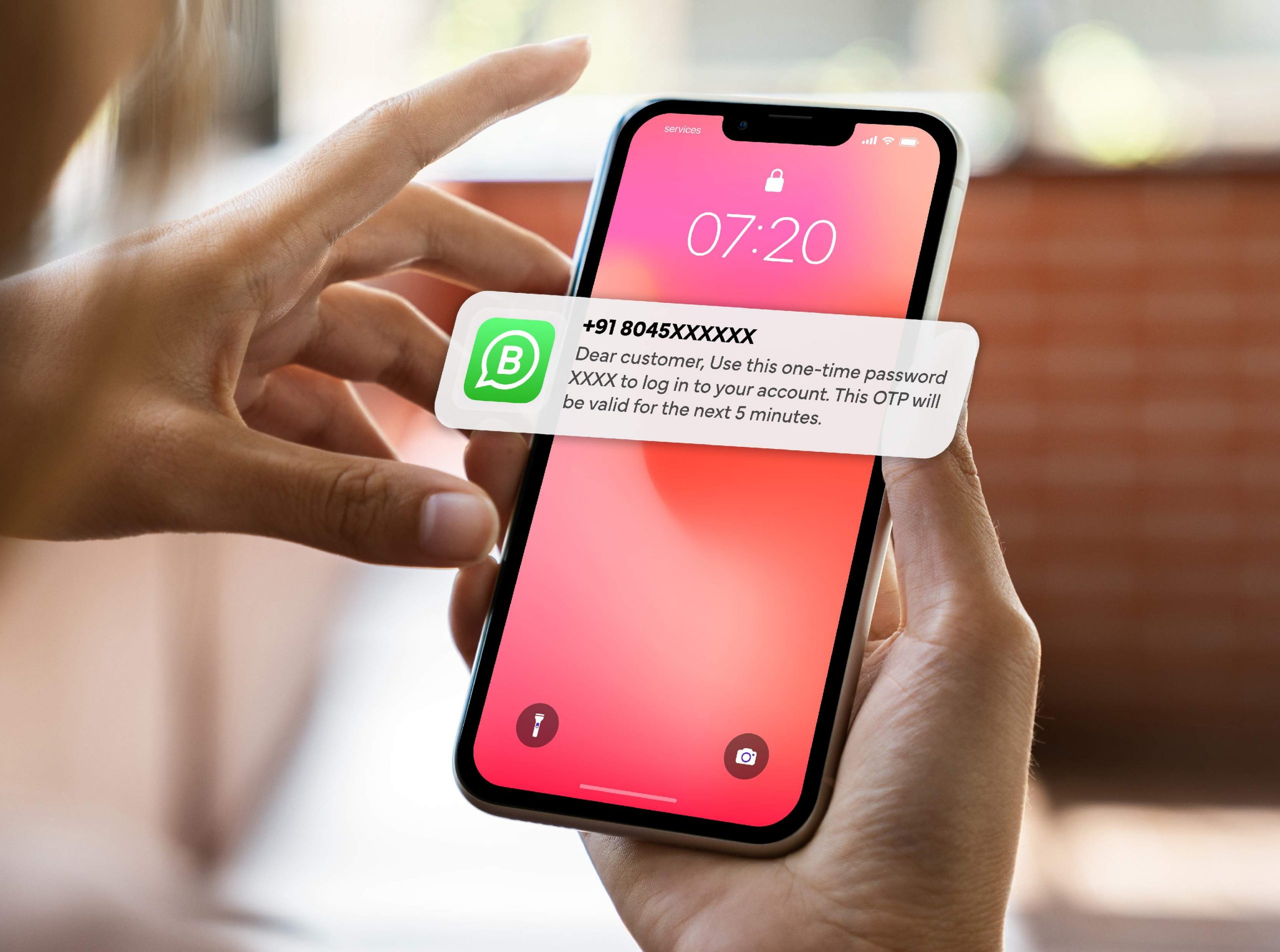IVR and Its Use-Cases To Improve Customer Experience
-
March 23, 2022
-
6 min read

In a digital world, customers are always short on time and are flooded with options. Customers have to be kept at the heart of business strategy and organizations must devise ways of resolving their problems fast to stay ahead of the curve. Creating a delightful customer experience has become one of the most important determinants of the success and reputation of an organization, over time. Even as companies worldwide switch to digital communication, voice interactions with businesses remain one of the most preferred communication channels for customers.
IVR, or Interactive Voice Systems – an automated phone system that facilitates interactions with the callers through voice or phone keypad selections, came into being in the 1970s.
The earlier IVR systems used DTMF (Dual-tone multi-frequency) to identify the commands callers issued from their touch-tone phone keypads. With the adoption of evolved technology, IVR systems have gradually become more customer-centric. An important milestone in the evolution of IVR systems occurred in the ’90s with computer telephony integration (CTI) – which allowed IVRs to be integrated into customer relationship management (CRM) software or billing systems, helping customers self-serve. Today with the technology developments in Artificial Intelligence, Natural Language Processing, etc. IVR systems have become more advanced, giving rise to many kinds of IVR systems like –
IVR for Self-Service – These are automated voice services that allow businesses to service high call volumes at optimised costs. These systems are also called dynamic IVRs that can identify & segment callers, resolve their queries without the need for transferring the call to a live agent unless the query is unresolved by the automated system.
Hosted IVR – These IVR systems are hosted on cloud or software platforms, allowing businesses to run such IVRs through the internet 24X7. These IVRs allow businesses to offer an always-on customer interaction channel.
Agent-Assisted IVR – With these solutions, an agent can initiate an automated dialogue with the customer with pre-recorded phrases. With developments in conversational AI, these systems can sound near human-like. These can simplify customer interaction by eliminating the need for customers to go through complex-structured menu options.
Visual IVR Systems – Visual interactive voice response adds a multichannel visual interface to the IVR experience, utilising communications channels like smartphones and computers. These can help streamline the information-gathering process about a caller and make it more comprehensive.
Benefits of IVR Systems and How they Can deliver Superior Customer Experiences
The phone has always been the first channel that customers prefer when they want a faster resolution of their queries. Research suggests that 51% of consumers believe that the fastest channel to get resolution of their problem is through a phone, and 83% of consumers will stop interacting with a business after a poor IVR experience. There’s no denying the fact that delivering a delightful experience on the voice channels is extremely crucial.
When designing an IVR strategy businesses should keep in mind the following things to provide a better experience –
- Use customer research to understand the questions that customers might want answers to.
- Develop an easy-to-use menu with minimal re-directions so that customers easily reach where they want to go.
- Always provide an alternative human contact option.
- Integrate a way to route calls to customer agents best equipped to handle the query.
- Empower customers by integrating self-service options.
- Integrate business applications into IVR menus like billing so that customers can directly perform activities through the system.
How IVR Systems Provide Better Customer Experiences
Save Customers’ time
The number of human customer executives might be limited but with the IVR system that is not the case. IVR systems can help lower the wait time for inbound callers. Businesses can use IVR systems to optimise the contact centre operations by triggering self-service IVR systems instead of making customers wait. These systems enable customers to quickly get a resolution to simple queries without the need for a human agent. This also allows lowering the wait time for customers who wish to speak to a human agent.
Post you may like to read: How Call Deflection Can Help Enterprises Deliver Better Customer Experience
Personalised interactions
Every customer is unique and IVR systems when bolstered with technologies like web-based chatbots or an RPA solution – allow the embedded AI-ML solutions to keep learning from the interactions and become smarter. With this power, IVR systems can easily understand intent, be responsive, converse with the customer accordingly and offer personalised solutions.
Empathetic human conversations
As IVR systems take the load off from the contact centre of the simpler calls, the customer executives can handle the human interactions with much more empathy. This helps with improved customer engagement. These systems when connected to an RPA or RDA further amplify the efficiency of the customer executive and improve customer experiences.
IVR-powered customer surveys
Research suggests that customers’ response rate on IVR surveys is much higher than online surveys. IVR surveys when integrated into the interaction can provide businesses real-time feedback on the calls and further improve their customer experience.
Round-the-clock customer support
IVR systems help customers reach out to businesses at any time without the need for human agents. With highly advanced IVR systems, most queries can be solved, helping businesses offer stellar customer experience and gain loyalty.
IVR embedded to apps
High volumes of calls can be streamlined by integrating the IVR system into business interaction channels like apps. If a business is getting a large volume of calls about a particular problem for e.g. delay in-order delivery, payment issues, etc. IVR embedded directly into apps will help customers reach out to businesses in real-time while accessing the app and get a resolution.
Scale customer support with multi-language IVR
IVR allows businesses to scale their customer support in different markets requiring different languages. With text-to-speech technology, offering multi-language support has become even simpler. Businesses just need to input a text file in one language that the system translates into required languages and automatically generates audio messages. This helps businesses provide hyper-localization of the customer interactions in international as well as domestic markets.
Wrapping up
In today’s world, businesses can no longer afford to offer suboptimal customer experience. In a world of plenty, poor customer experiences at one channel can drive customers away forever, even if the product is superior. Voice or phone interaction has always been the most preferred channel for customers. With evolving technology, IVR systems can help streamline the contact centre interactions and provide a delightful and personalised customer experience at an optimal cost.
Explore the possibilities of enhancing your customer experience with impactful CPaaS solutions by Airtel IQ.
 Share
Share










